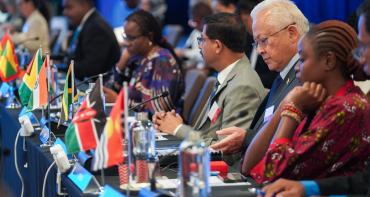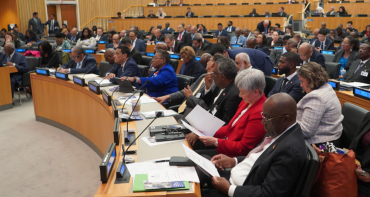Artificial Intelligence (AI) and its relevance to election management was explored during a Commonwealth training event in Sri Lanka from 5-9 May.
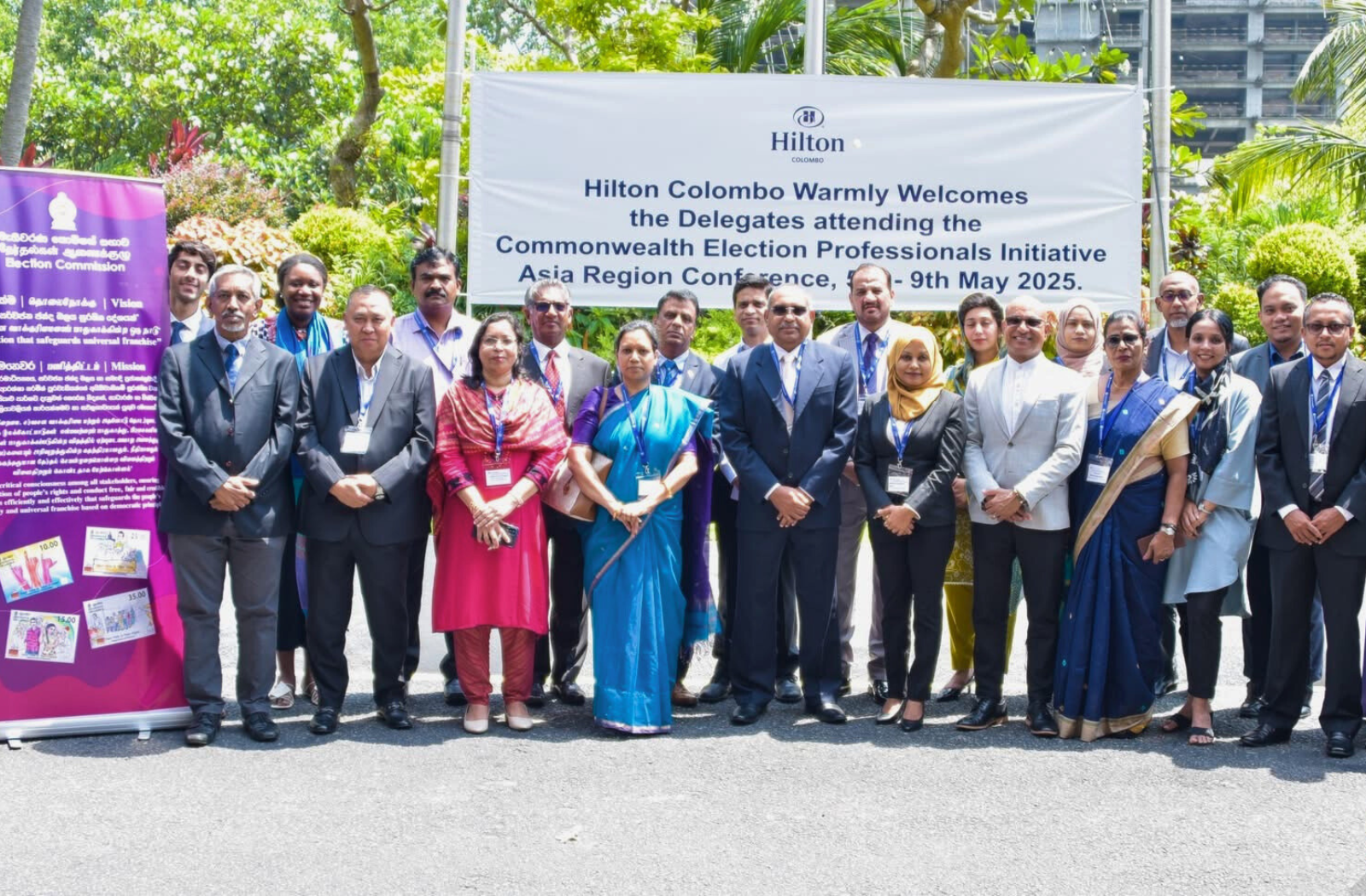
Senior electoral administrators from six Commonwealth Asia Election Management Bodies (EMBs) met over five days in Colombo to discuss challenges and solutions in electoral democracy.
Delivering a keynote address at the opening, Mr Ameer Faaiz, Commissioner of the Election Commission of Sri Lanka, stated that AI, once the realm of science fiction, is now a powerful force shaping governance, communication, and public opinion, and is hence no longer a futuristic concept.
Citing an example from his own country, he said:
“In Sri Lanka, we have begun exploring how AI could assist with roll cleaning and accessibility features, including translation for multi-ethnic regions.
However, a word of caution: the cardinal rule must be that AI assists human decision-making - it must never replace it. Elections are ultimately about trust, and that trust must reside in human institutions. AI should support our judgment, not override it.
The challenges we face are not unique to any one country. AI does not respect national borders.
Hence, we need collective safeguards. We must respond not as isolated actors, but as a community.”
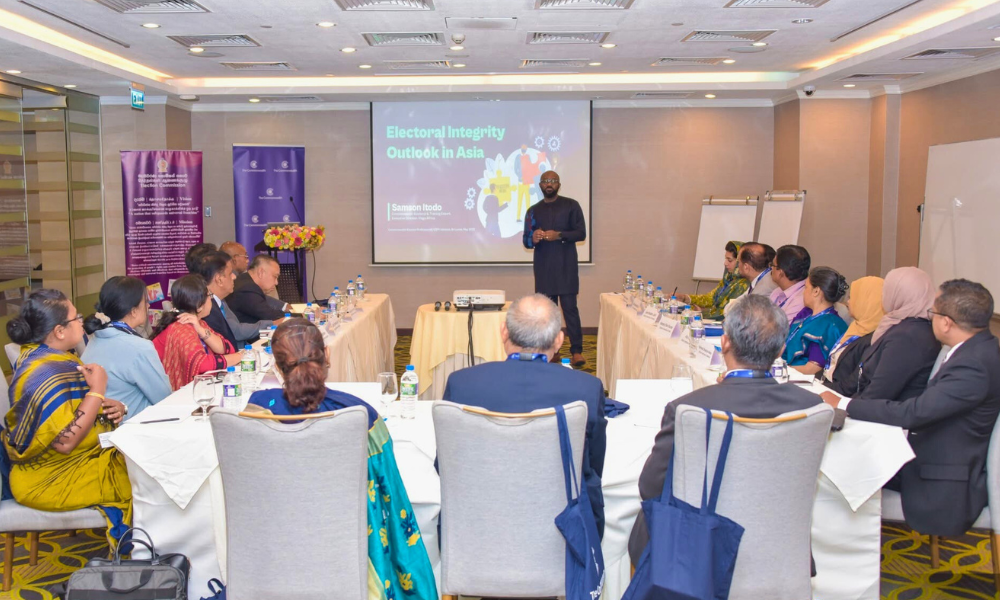
The five-day training covered various topics, including understanding the electoral integrity landscape, AI fundamentals, case studies of AI in election administration, ethical issues, and risks associated with AI-powered elections.
Participants also explored legal and regulatory considerations for AI in elections and practical advice around the development of guidelines for the use of AI in their respective EMBs.
One of the participants, Ms. Shahula Ismail, Director of Electoral Management, Elections Commission of Maldives, said:
“I now feel confident about the potential areas where we in the Maldives can explore AI to strengthen electoral integrity, particularly in civic and voter education, awareness campaigns, training programmes, and social media monitoring.”
The training was the sixth and final regional capacity-building event within the third phase of the Commonwealth Election Professionals (CEP) Initiative, which launched in January 2021 and has now concluded.
By collaborating with regional partners, the Commonwealth Secretariat supports EMBs in delivering effective elections, building trust, and enhancing democratic governance.
One of the facilitators, Samson Itodo, who has trained electoral administrators across different regions of the Commonwealth, said:
“It’s important to work with democratic institutions like electoral commissions across the world to rethink how innovation and technology can be leveraged to enhance the integrity of elections. We must note that Al enthusiasm does not equate to readiness, and EMBs must play their part in shaping guidelines for the application of Al in their processes.”
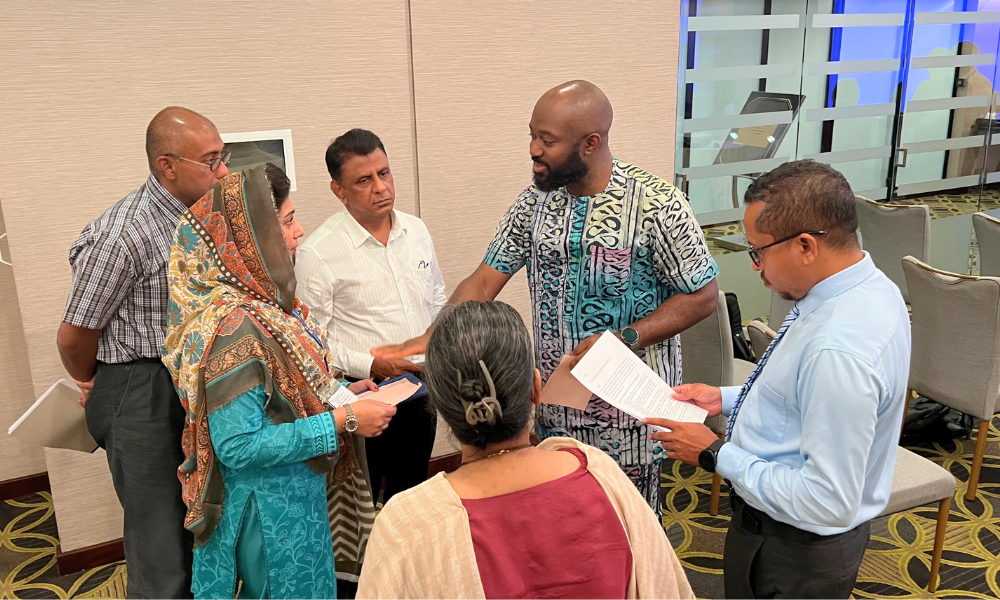
The CEP initiative is an Australian-funded, multi-year project that provides professional development opportunities to election professionals across the Commonwealth.
Since 2013, over 300 election professionals from 52 Commonwealth Election Management Bodies (EMBs) have taken part in at least one of sixteen regional training events. These gatherings have provided a trusted and effective platform for sharing experiences, emerging good practices, and solutions to common challenges. With continued support from the Australian Government, the CEP Initiative will enter its fourth phase on 1 July 2025.
Learn more about Commonwealth electoral support
Media contact
-
Temitope Kalejaiye, Public Relations and Engagement Officer, Commonwealth Secretariat
- M: +44 7436 032707 | Email


